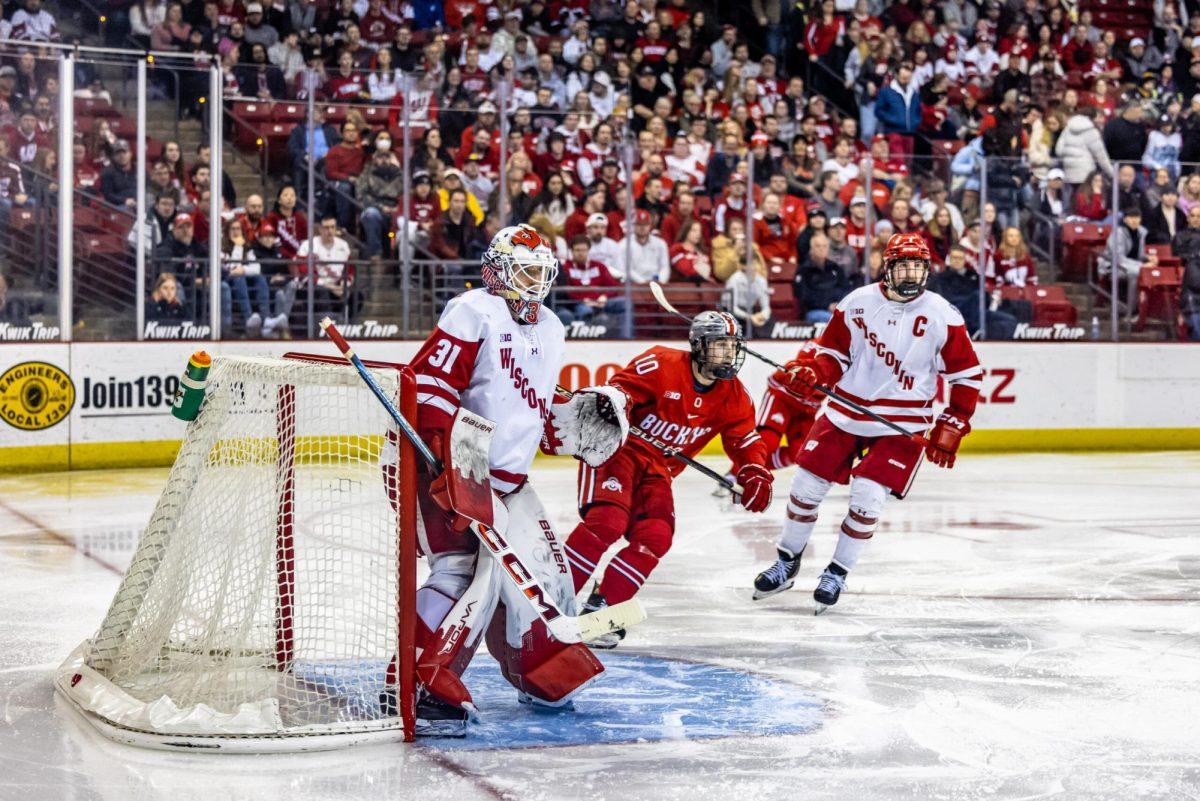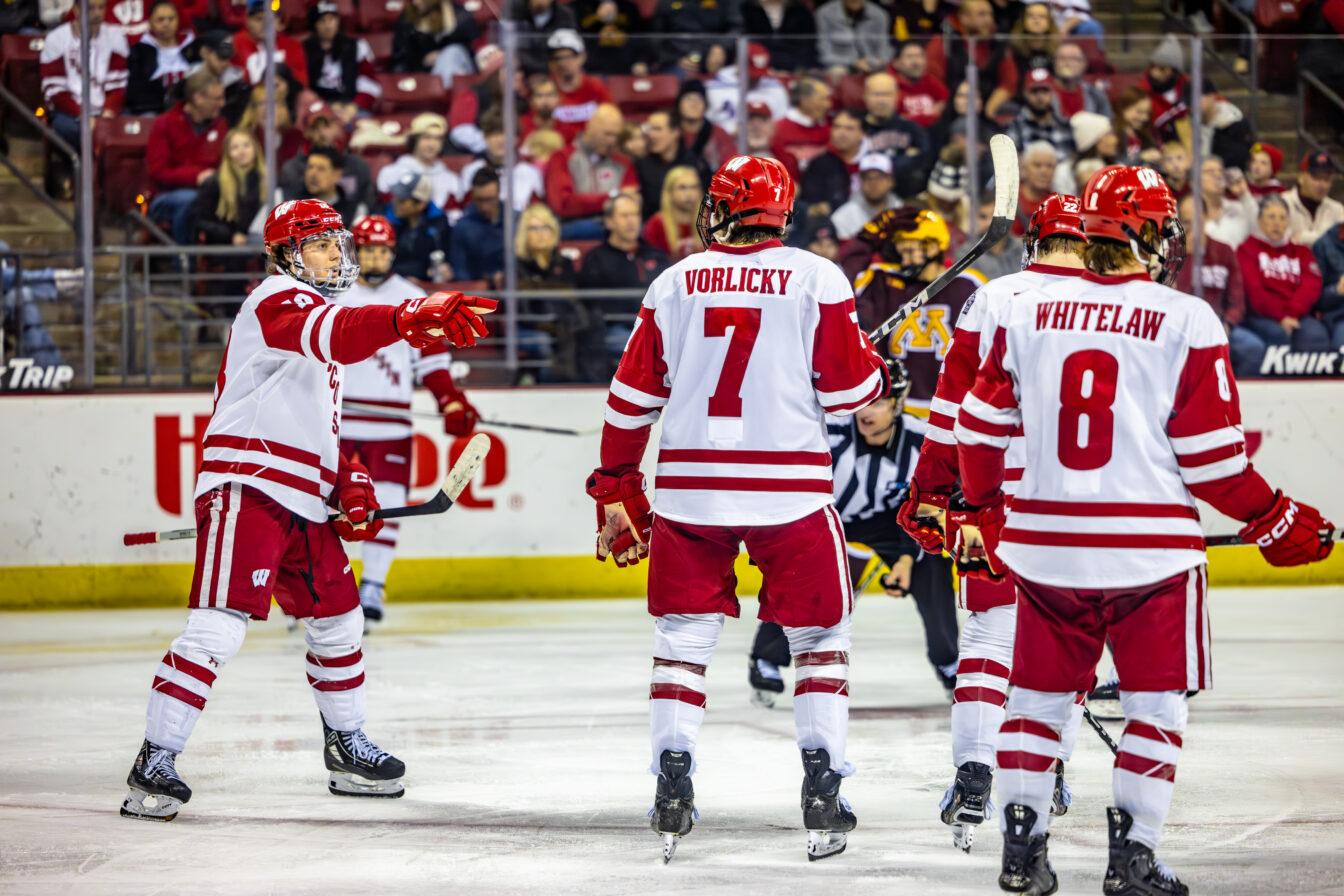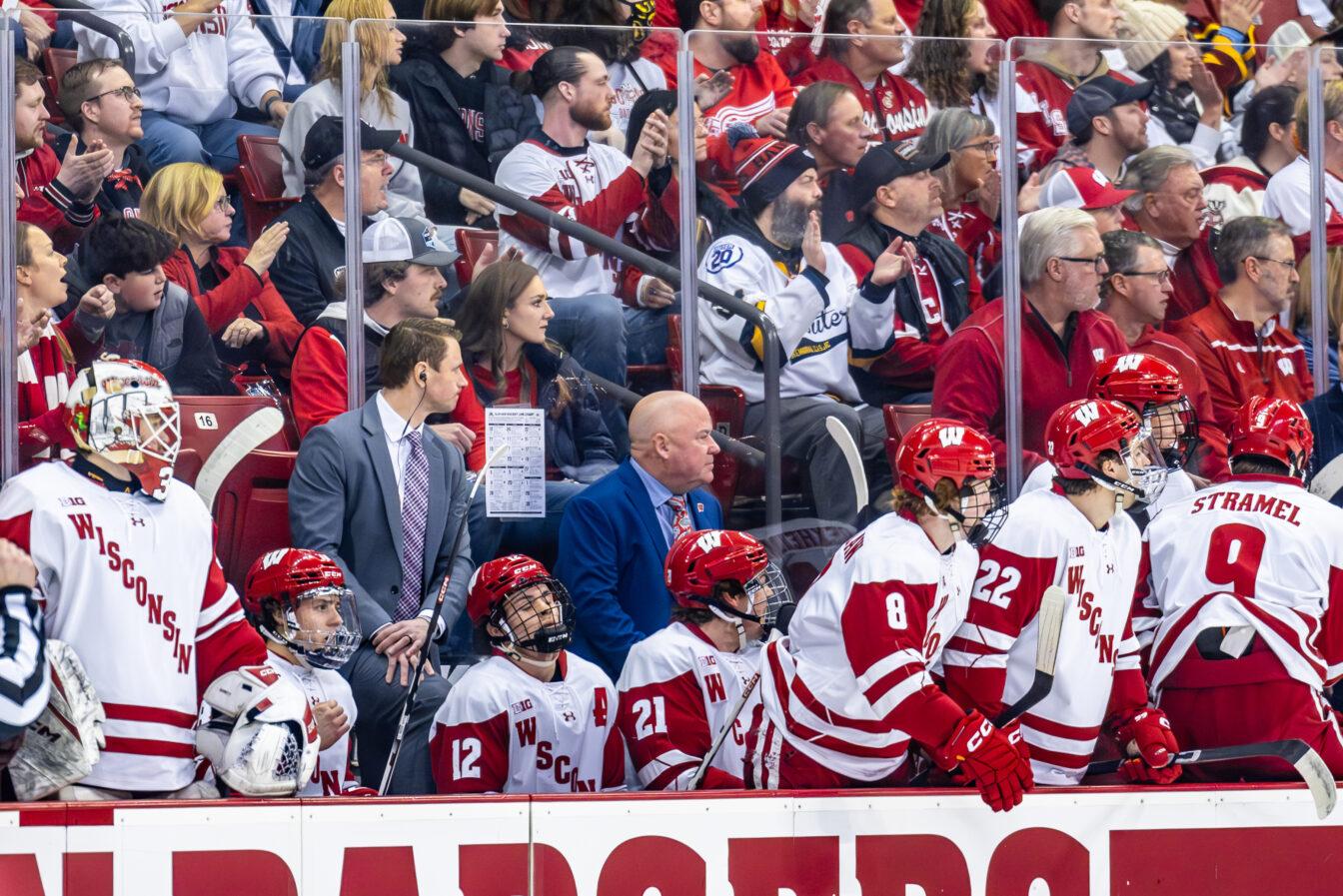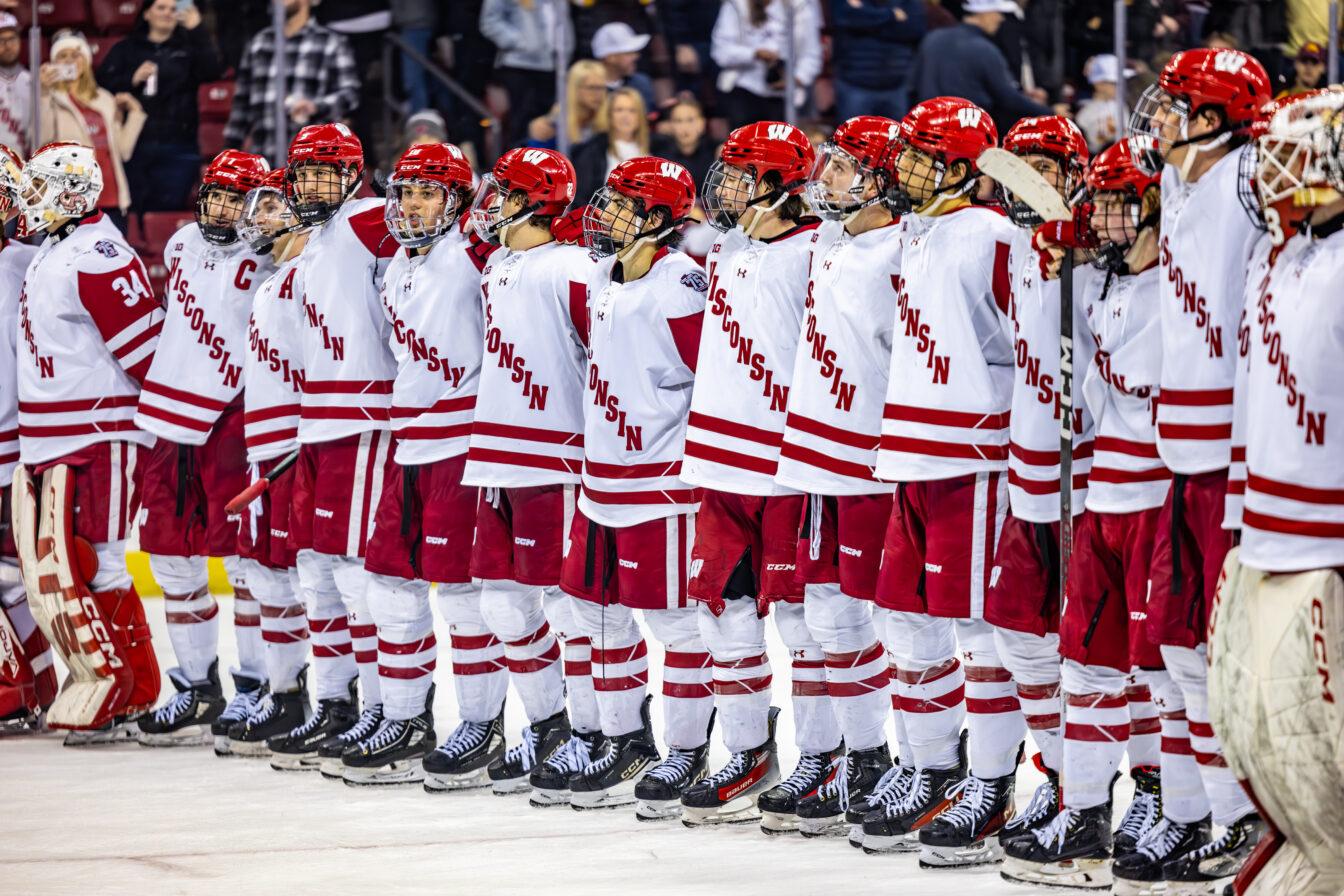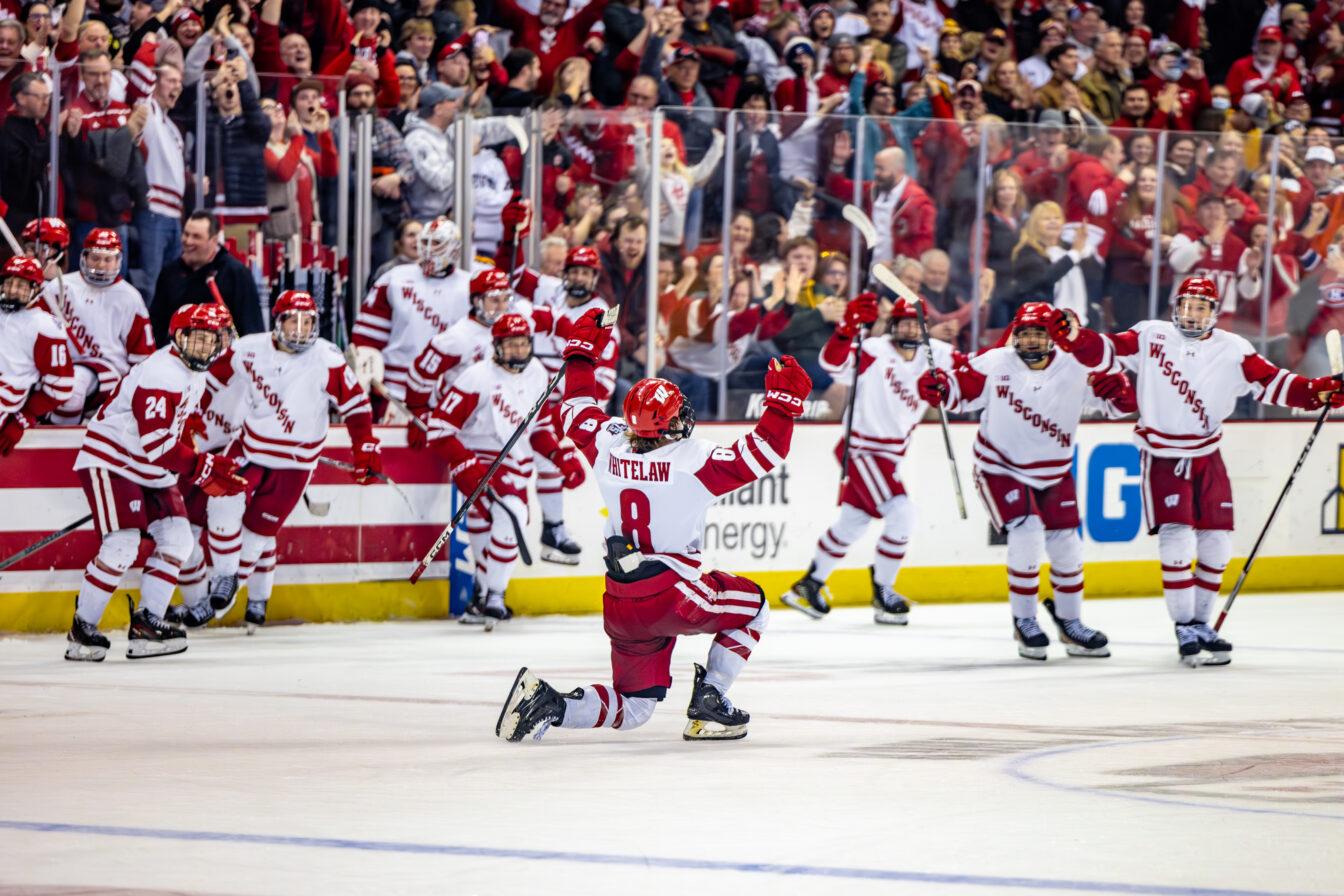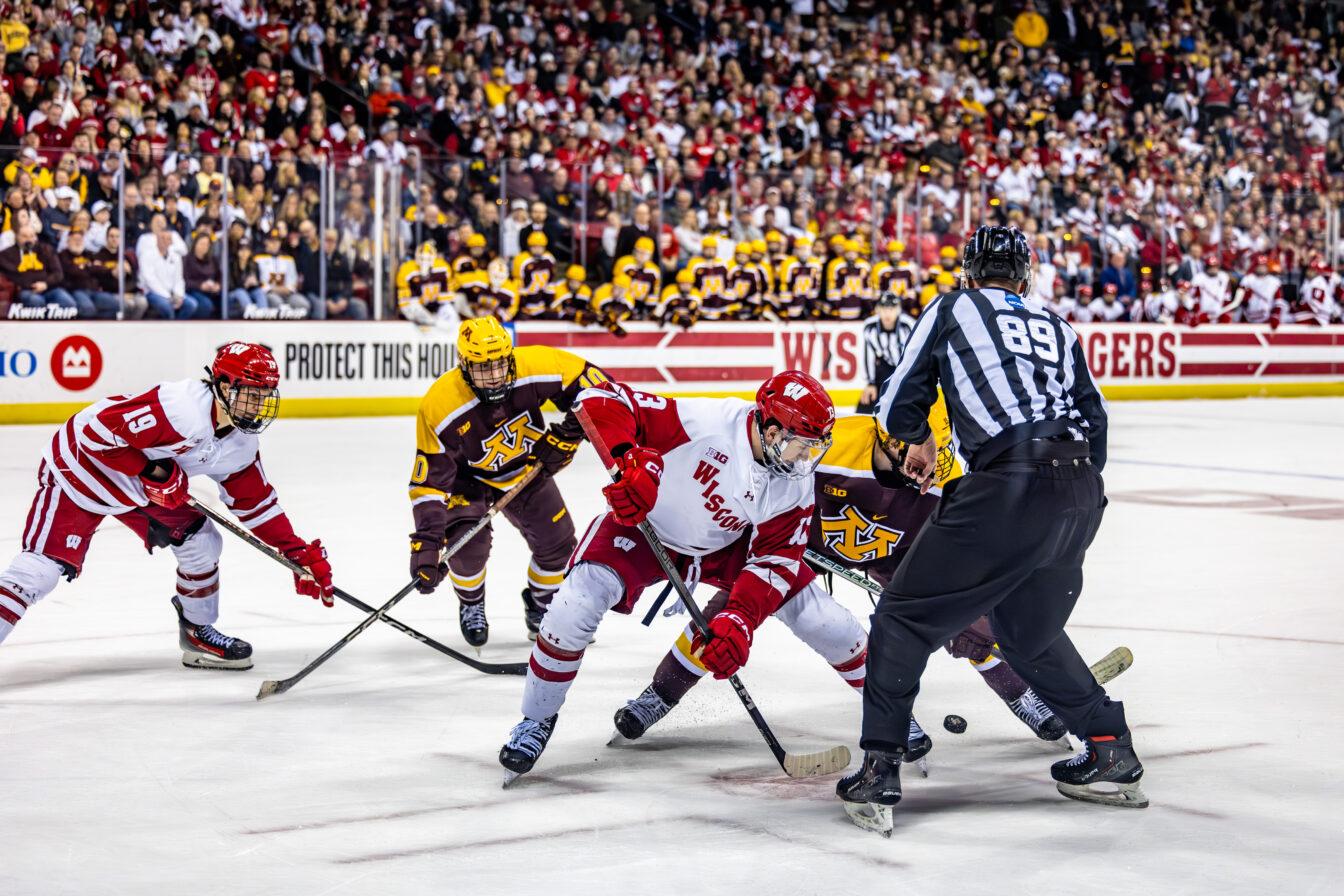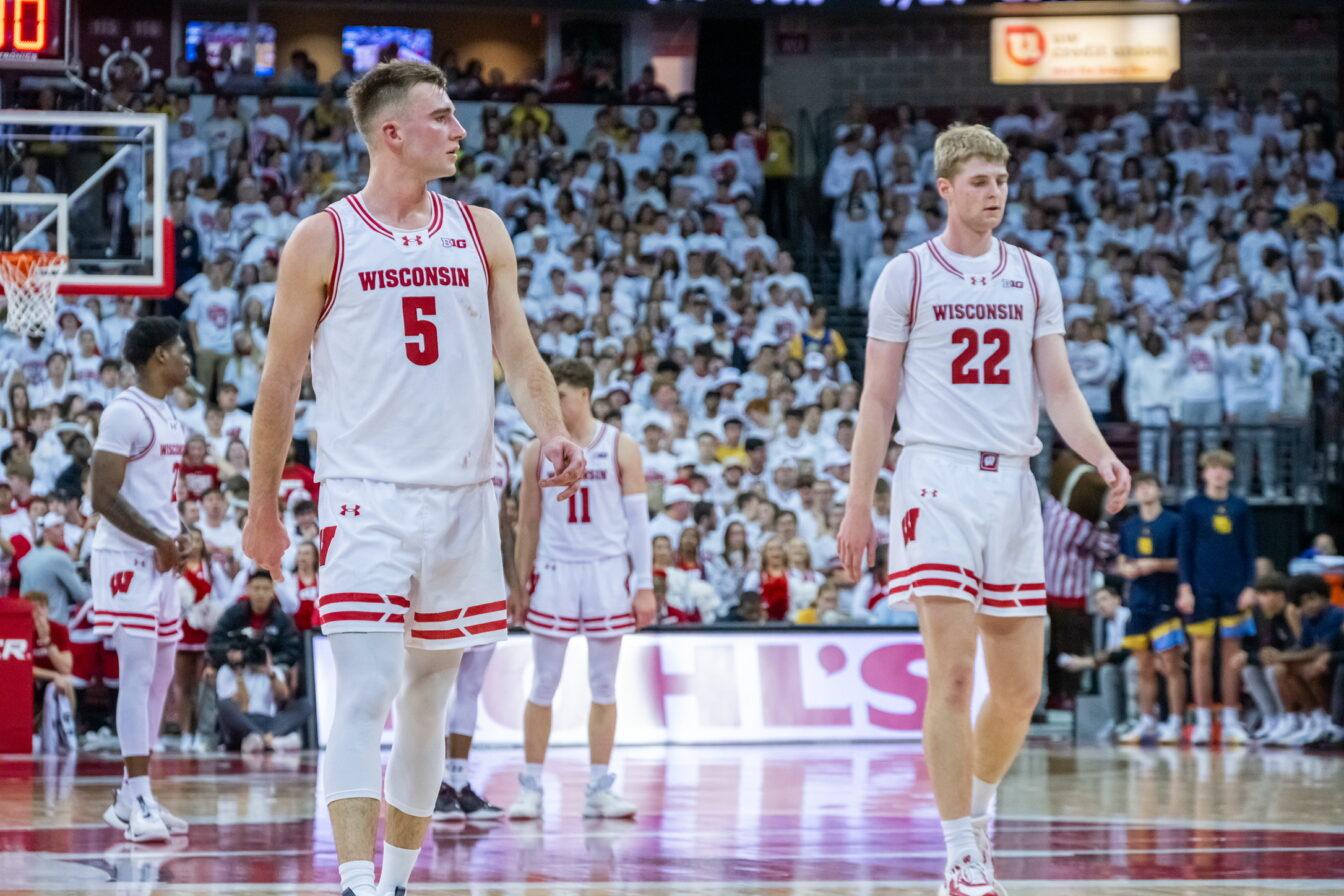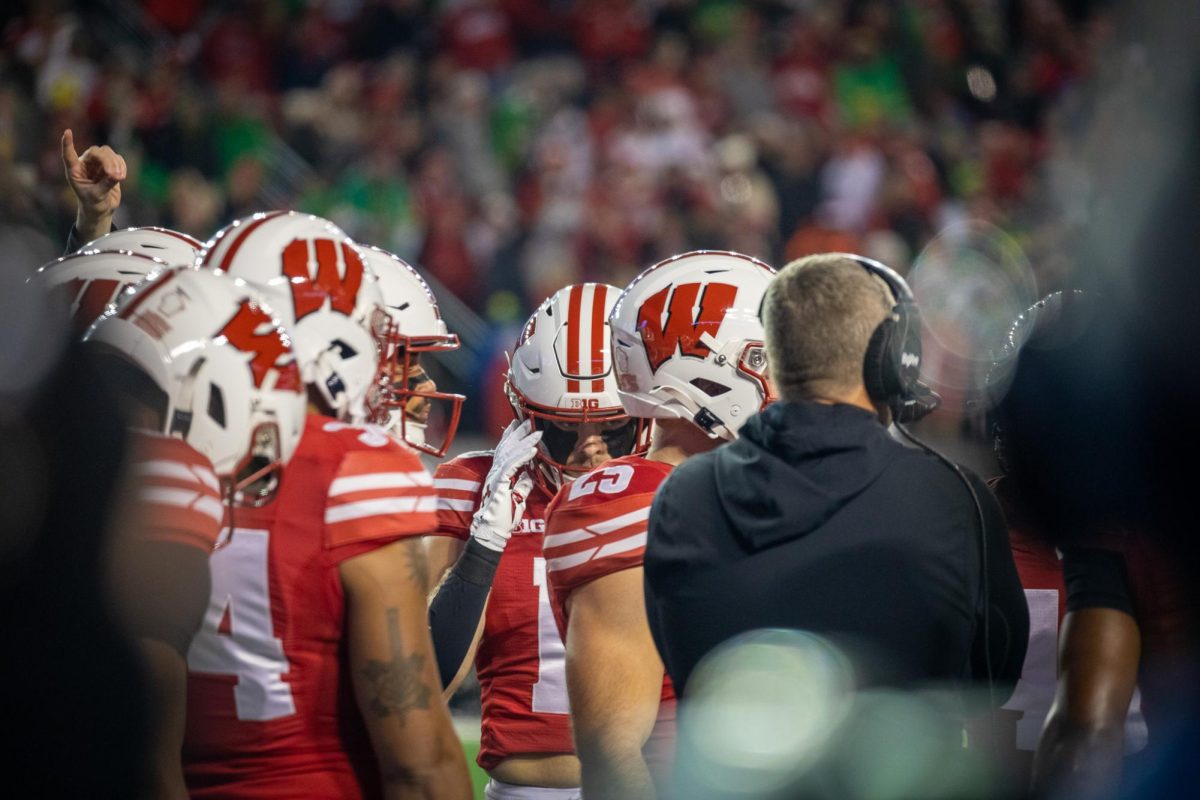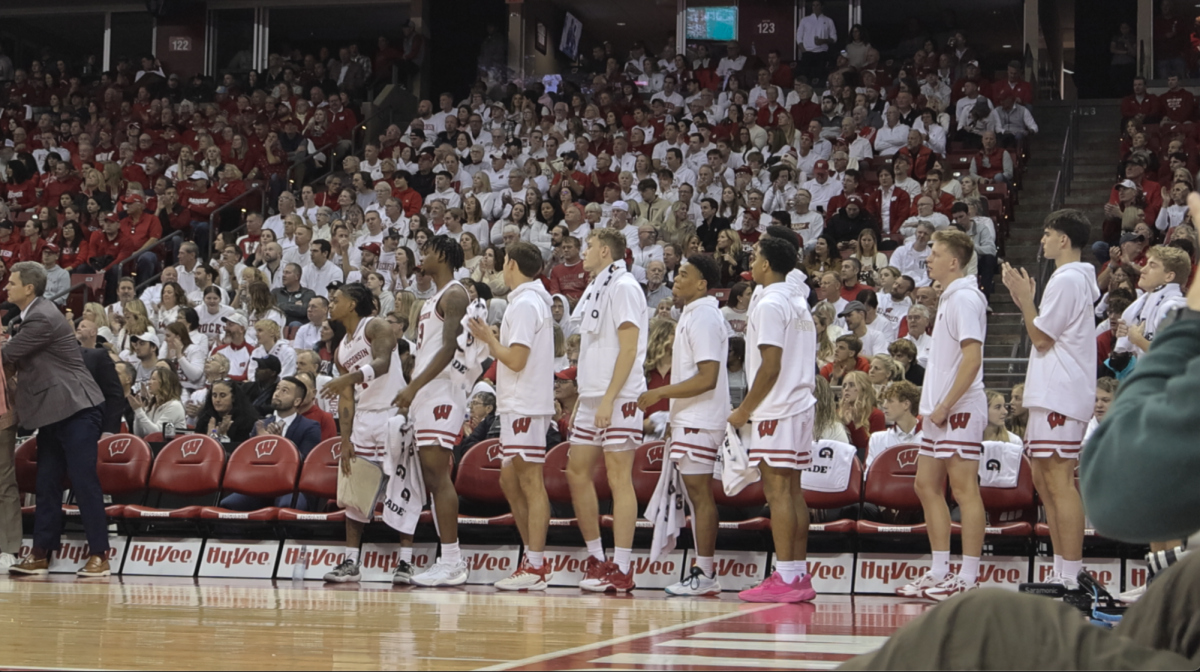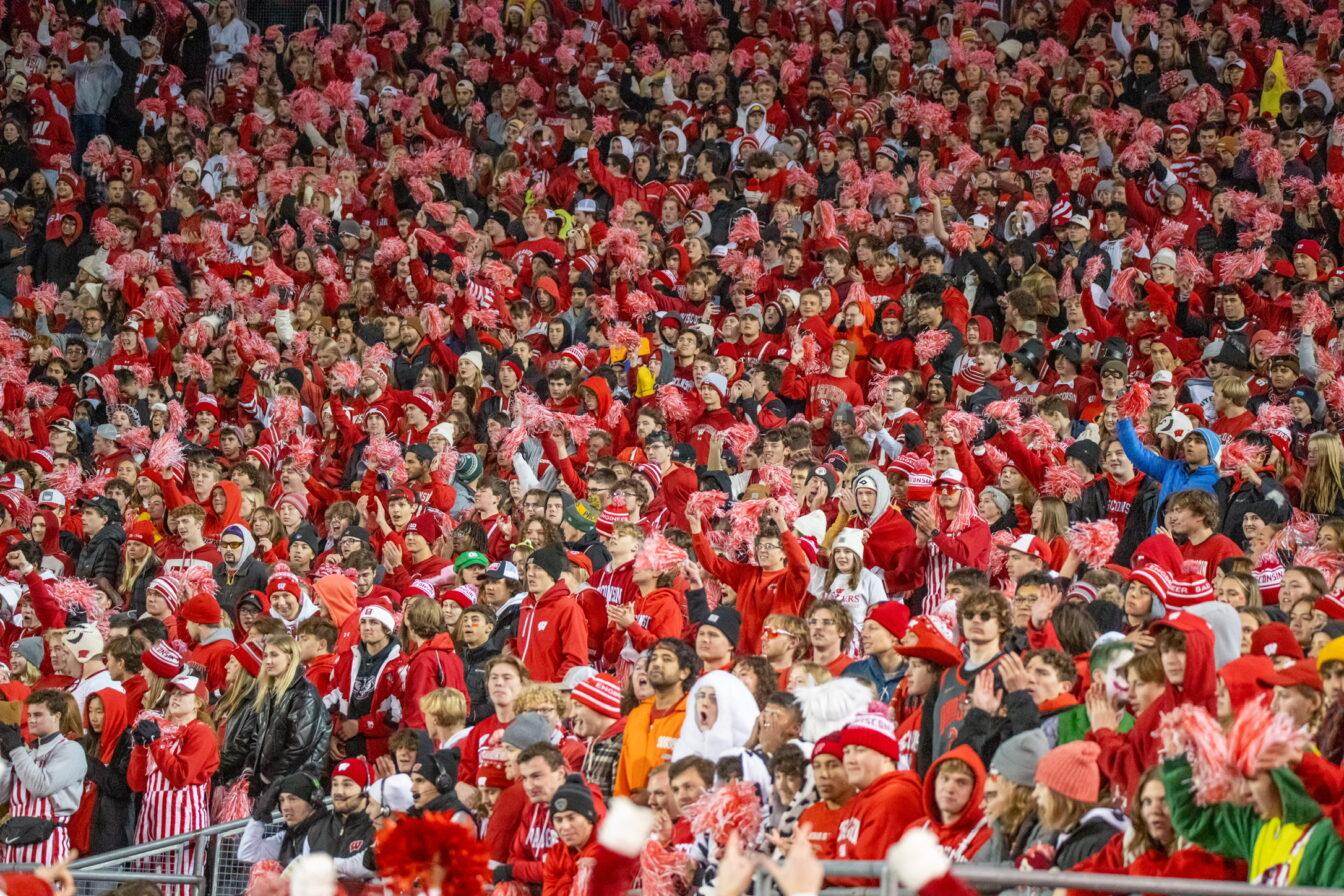
While top talent often decides to leave the college hockey ranks early, there are cases where an NHL draft pick will honor all four years of his commitment to his school. And sometimes it pays off.
North Dakota’s Matt Frattin was kicked off the team before his junior year after getting in legal trouble. A fourth-round pick of Toronto, he could have just turned pro. Instead, he stayed at UND, rejoined the team in December and then had a senior year where he led the Fighting Sioux to the Frozen Four and was named a Hobey Baker Award top-three finalist.
Wisconsin has its own success stories as well. One Badger who opted to stay for his senior year saw the decision pay off in a big way.
Blake Geoffrion is the first fourth-generation NHL player, whose grandfather, Bernie “Boom-Boom” Geoffrion, is credited with inventing the slap shot. The second-round pick of the Nashville Predators considered turning pro after his junior year. Instead, he joined six other seniors on a veteran team that had big aspirations.
“I think there’s a lot of factors, but this was the main factor, what kind of team we were going to have and the personnel we had coming back,” Geoffrion said last March.
Geoffrion would help guide Wisconsin to the national title game, compiling a 28-goal season that helped him become UW’s first Hobey Baker Award winner.
But even aside from winning the Hobey and being named an All American, Geoffrion said getting additional experience as a leader – he was a tri-captain as a senior and co-captain as a junior – and simply honing his game was reason enough to have stayed.
“Me personally, I think it helped a lot. Just sharpen up any miscues I had in my game, to get confidence, to get confidence to score and be confident in my ability on a lot of different areas of the game,” he said in a recent phone interview. “There’s no way I would go back and do it any different.”
Veteran talent and leadership often are a big part of a Frozen Four team’s success. Wisconsin had seven seniors and nine juniors when it made its run to the 2010 title game. This season, national champion Minnesota Duluth had 13 upperclassmen on its roster. Senior-dominated North Dakota was the favorite to win the title entering the national semifinals. Wisconsin’s last title-winning team, led by current NHL-er Adam Burish in 2006 also had 13 upperclassmen.
The extra maturity gleaned from staying the full four years can pay off in the pros as well. After spending most of his season with the Milwaukee Admirals, Geoffrion was called up to Nashville at the end of February. Geoffrion said one of the biggest adjustments to pro hockey is finding ways to fill the time – a typical day can consist only of practice or a game. The rest is free time, which is harder to deal with than it might sound.
“I know they all get a little bored I think, with no school,” UW defenseman Justin Schultz said. “I talked to Jake (Gardiner), he was sitting in his hotel room and he was bored, didn’t know what to do with no school or anything. He was on Facebook a lot, I know that.”
Badger head coach Mike Eaves, who played four years at Wisconsin and then eight in the NHL, agreed it’s a big adjustment.
“To me, one of the biggest things is when you go play pro, you’ve got so much time on your hands. How do you manage that time”? he said. “You’re more mature when you leave this place.
“And you’re now under the microscope of your GM. This is your job. If you’re not doing your job, I’m sending you down in the minors.”
And hockey aside, there is the oft-forgotten fact the athletes are getting an education as well. Leaving early hurts the chance the player will finish his degree.
“The statistics are overwhelming in that fact that if a young man stays three years, 90 percent of those kids will finish their degree,” Eaves said. “For the kids that only stay two years, only 50 percent of them go back and finish.”
Players are aware they can’t play hockey their whole lives.
“To get that degree and have that option of being able to go back and get a job somewhere is huge,” Geoffrion said. “Kind of a backup plan to hockey, because you’re not going to be able to be able to play hockey for the rest of your life. It’s kind of a backup plan to life, really. I’m just really happy I’ve got that.”
Geoffrion was glad to finish his degree in four years, before his pro career began. McBain, Stepan and Turris say they’re intent on finishing their degrees.
But it’s not easy.
“Life happens, you get married, you have kids, you move, you get a job,” Eaves said. “To finish really takes a lot of guts and hard work and determination and perseverance to get it done.”
Geoffrion said he wouldn’t want to go back to school after his playing career is over.
“College is a time where you go to college to have fun, to go to class, to be with kids your age,” Geoffrion said. “I just don’t think I would want to be a 40-year-old or 35-year-old in college with a bunch of 20-year-olds. I just don’t think I would enjoy it as much as I did when I was 18 to 22.”
In the end, it might come down to maturity.
“It’s definitely going to be tough. Once you get to that next level, you’re not going to be thinking about doing that,” Schultz said. “But you’ve got to show maturity and grind it out. Once you get that done, it will be a huge burden off your back and you’ll have that degree in your back pocket that will be so useful down the road.”
The fact that Geoffrion stayed his full four years could potentially help keep players in the future. After Geoffrion won the Hobey last year, Eaves said he would use that as a selling point to encourage his kids to stay.
A fellow player’s words can also carry more weight than a coach’s, as Eaves likened it to listening to a brother rather than a parent.
Geoffrion himself offered his former teammates some advice on the matter, ultimately saying there’s no set in stone answer. Rather than push them one way or the other, he just told them to weigh the pros and cons.
“I talked to Craig Smith this year, a little bit, just about what my thought process was when I was deciding to leave or not. I talked to Schultzy a little bit, I didn’t talk to Gards,” Geoffrion said. “I just told them about my experiences. It’s one of those things where you can’t have someone decide for you, you have to decide yourself.”
Check back Monday for the third part in this five-part series. Also, go to badgerherald.com/blogs/sports for additional quotes and notes.


